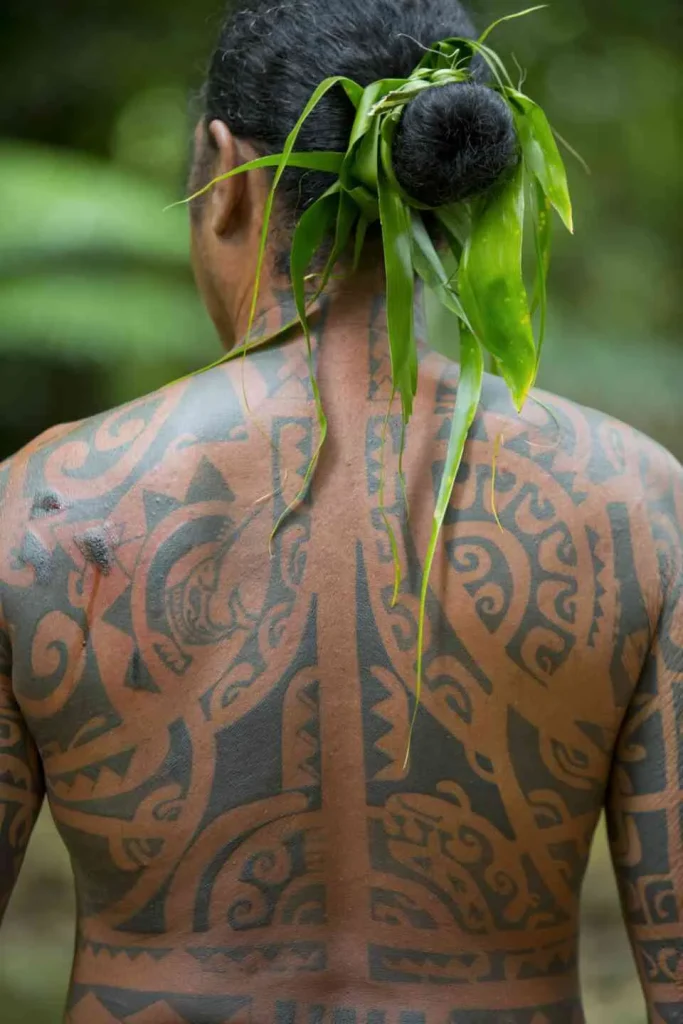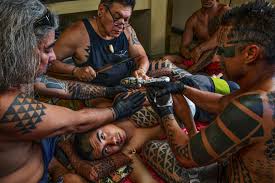Tattoos have long served as symbols of identity, resistance, and allegiance. From the warrior tribes of Polynesia to revolutionaries in 20th-century Europe, body art has historically communicated power, purpose, and politics. In recent decades, as tattoos have entered mainstream culture, their role in political life has changed — but not disappeared.
In this article, we’ll trace the history of political tattoos and how they’ve been used — or avoided — by public figures. We'll also look at the strange modern twist of viral speculation, using the case of Boebert tattoos to examine how body art continues to shape public perception in the digital age.
Tattoos in Early Political History: Power and Belonging
In many early civilizations, tattoos were deeply political. In ancient Egypt, certain body markings were used to denote religious or royal status. In Polynesian and Maori societies, tribal tattoos indicated one's lineage, achievements, and societal rank — all inherently political in tight-knit tribal communities.
These tribal tattoos were not decorative, but functional and ideological — a kind of wearable résumé. They told stories, claimed identities, and served as symbols of community loyalty. This historical role is important when interpreting how tattooing evolved within political structures.

Revolutionary Ink: From Soldiers to Socialists
The modern association between politics and tattoos began to take clearer shape during periods of upheaval. For example:
- In 19th-century Europe, anarchists and revolutionaries often used tattoos as discreet signs of allegiance.
- Soviet prisoners tattooed ideological slogans or anti-authoritarian messages on their skin — a literal form of resistance.
In these cases, tattoos served as both political tools and personal statements. The skin became a battlefield of belief.

America’s Politicians and Their (Often Hidden) Ink
Compared to other parts of the world, American politicians have historically shied away from tattoos. This was due to long-standing social stigma — tattoos were seen as rebellious, lower-class, or unprofessional.
However, this began to shift in the late 20th and early 21st centuries. As tattoo culture became more normalized, the idea of a tattooed politician no longer seemed unthinkable.
In fact, some military veterans-turned-politicians openly wear tattoos. But most high-ranking officials still keep their skin ink-free — or at least, keep any tattoos under wraps.
This brings us to a unique and very 21st-century case study: Lauren Boebert tattoos.
Boebert Tattoos: Modern Rumors Meet Historical Curiosity
Lauren Boebert, the outspoken Congresswoman from Colorado, is known for her fiery persona and Western conservative values. In 2023–2024, the internet became fascinated with the idea that Boebert might have a tribal tattoo — a rumor that started after a grainy photo began circulating online.
Searches for:
- "lauren boebert tribal tattoo"
- "does lauren boebert have tattoos"
- "lauren boebert tattoo pic"
...spiked dramatically. Some swore they saw a shadow of ink on her shoulder. Others claimed the image was doctored or AI-generated. No official confirmation ever came — Boebert neither confirmed nor denied the existence of a tattoo.
This small incident reveals a powerful truth: in the digital age, even a rumor of a tattoo can carry political weight.

Why Tattoos on Politicians Still Matter
Whether it’s a tribal symbol or a slogan in cursive script, a tattoo still provokes a reaction when seen on a public official. It raises questions of:
- Authenticity
- Personal belief
- Identity and past affiliations
In Boebert’s case, many interpreted the rumored tattoo as a sign of rebellion or an alignment with rugged American individualism — values often associated with her political stance.
The lauren boebert tattoo discussion, then, becomes more than a body art rumor. It’s a symbol of how we scrutinize politicians’ bodies for signs of deeper meaning.
Tattoos as a Mirror of Public Fascination
In older eras, tattoos required witnessing someone in person — they were intimate and physical. Today, rumors spread digitally, and images (real or fake) go viral in minutes. A lauren boebert tattoo pic — even a false one — gains attention because people project narratives onto it.
The body becomes a symbol, the tattoo a myth. In Boebert’s case, the boebert tattoos phenomenon illustrates how:
- We crave visual symbols in political storytelling
- Body art becomes part of a public figure's brand — even without their consent
- The line between public and private persona is thinner than ever
From Ancient Tribes to TikTok: The Journey Continues
Looking at this history — from tribal rituals to Boebert rumors — one thing is clear: tattoos and politics have always been connected. Whether used to signal affiliation, inspire rebellion, or provoke curiosity, tattoos continue to play a role in how leaders are perceived.
In ancient Polynesia, a tribal tattoo might have marked a chief’s authority. Today, a viral rumor of a tribal design on a modern politician can spark global debate.
This strange evolution from sacred tradition to meme-worthy speculation is part of our digital historical record.
Conclusion: Ink, Politics, and Public Imagination
So — does Lauren Boebert have tattoos? We still don’t know for sure. But that’s almost beside the point.
The viral interest in the idea of boebert tattoos tells us that we’re still looking for symbols to help us decode politicians. In a world of media overload and branding, a single alleged tattoo can ignite conversations about authenticity, rebellion, and identity.
Whether or not Boebert ever had ink on her shoulder, the idea of her tattoo has already entered the political folklore of our era — a modern legend that blends history, rumor, and culture in a way only









Share:
The History of American Traditional Tattoo: Timeless Ink with Bold Roots
The Sacred Ink: A Historical Exploration of Religious Tattoos Across Cultures